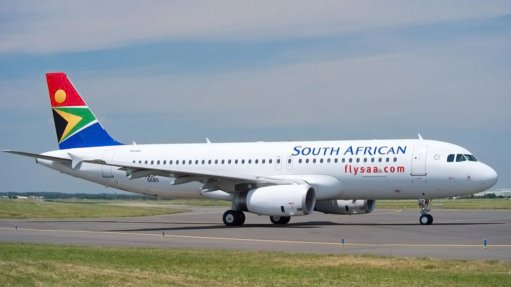
South Africa’s government will place the national airline under a local form of bankruptcy protection as a last-ditch measure to try and prevent its total collapse.
State-owned South African Airways is entering a business-rescue process to allow a “radical restructuring” under which the carrier will receive R4-billion in funding, Public Enterprises Minister Pravin Gordhan said in a statement Thursday. The process will allow SAA to continue operating.
“This is the optimal mechanism to restore confidence in SAA and to safeguard the good assets of SAA and help to restructure and reposition the entity into one that is stronger, more sustainable and able to grow and attract an equity partner,” Gordhan said.
SAA, which last made a profit in 2011 and has received R57-billion in bailouts since 1994, has been struggling to pay its bills after the National Treasury balked at providing it with more funding. Its finances took a further hit when staff staged a pay strike last month, grounding a number of flights and causing bookings to be canceled on a number of others.
South Africa’s Companies Act enables firms in financial distress to file for business rescue. If granted, a business-rescue practitioner is appointed to help the company reorganize and assess whether it can be turned around. Companies in the process of being rehabilitated are protected from liquidation and legal proceedings, enabling them to keep trading.
Gordhan said the business-rescue process at SAA will include:
Existing lenders to SAA will provide R2-billion of “post-commencement finance” guaranteed by the government and repayable out of future budget appropriations to enable SAA to continue to operate
The Treasury will provide an additional R2-billion of funding in a “fiscally neutral manner”
The full recovery of capital and interest on existing debt provided to SAA by existing lenders that is the subject of existing government guarantees will not be impacted by business rescue
A review of the airline’s cost structure will be conducted, with a simultaneous effort to retain as many jobs as possible.
“This set of actions should provide confidence to customers of SAA to continue to use the airline because there will not be any unplanned stoppages of flights or cancellation of flights without proper notice should that be necessary,” Gordhan said.
SAA spokesperson Tlali Tlali said the company’s board will announce the appointment of business-rescue practitioners in “the near future.” It also plans publish a new provisional flight timetable “shortly,” he said in an emailed statement.
Labor union Solidarity filed a lawsuit last month aimed at forcing the airline into business rescue, saying the measure was needed to guard the interests of workers and taxpayers whose money was being squandered.
Other labor unions, such as the National Union of Metalworkers of South Africa, have opposed talk of restructuring the airline or selling a stake to private investors. That’s in line with most unions in South Africa, which have threatened strikes if the government attempts to reorganize state companies and cut jobs.
TAXPAYER BURDEN
“By placing South African Airways under business rescue, the South African government effectively outsources the hitherto politically unpalatable (but essential) work of restructuring the failing national carrier to non-ANC hands,” said Daniel Silke, the director of Cape Town-based Political Futures Consultancy, in a Twitter posting. The ANC is South Africa’s ruling African National Congress.
The main opposition Democratic Alliance welcomed the government’s decision to voluntarily place the carrier into business rescue, saying this was the only viable option to prevent it from placing any further burden on the economy and taxpayers.
“The business practitioner who is appointed must take robust action to immediately cut costs at SAA,” DA lawmaker Alf Lees said by email. With business rescue will come an obligation for government guarantees to be honored, which will require “an increase in sovereign borrowings that in turn will increase debt-service costs and place a further burden on taxpayers.”